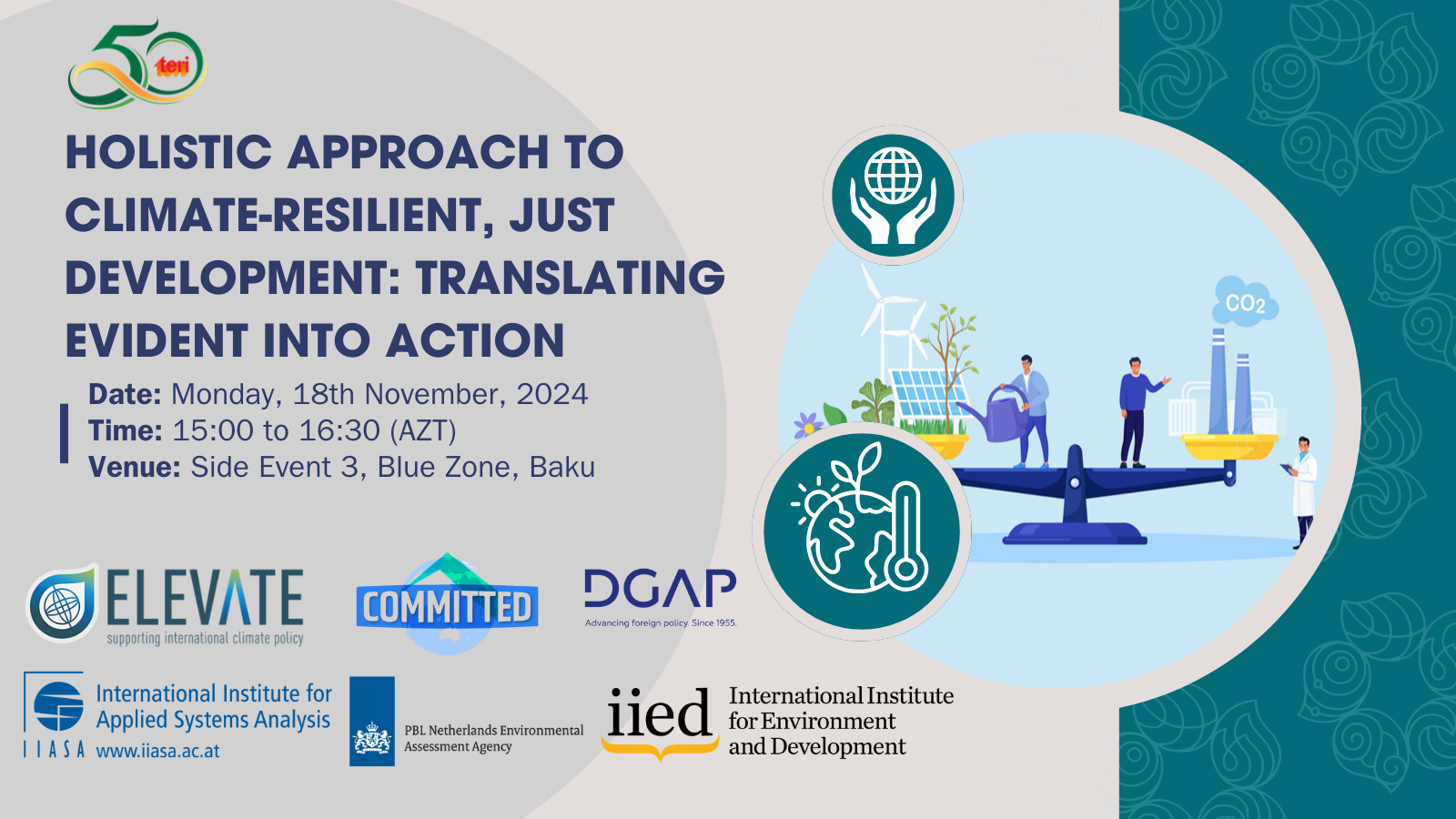Holistic approach to climate-resilient, just development: Translating evident into action

As the impacts of climate change become increasingly severe and widespread, there is an urgent need to develop strategies that not only mitigate climate change and its impacts but also ensure that the responses are fair and just for all communities, especially those most vulnerable. While designing these strategies need to be based on robust scientific assessments, implementing them would require coherent policies at global and national levels supported by adequate institutional, financial, and technical capacity.
The event takes a holistic approach, recognizing that addressing climate change requires more than just technical solutions. It emphasizes the importance of integrating quantitative insights with justice-focused policy pathways. This means that the financial assessments should not only be based on economic models but also consider the principles of equity and justice and need robust institutional solutions.
One of the key components of the event is the presentation of a model-based assessment. This assessment aims to quantify the financial requirements necessary to address three main areas: mitigation, adaptation, and loss and damage (L&D). The event explores how financial resources can be allocated in a way that prioritizes the needs of the most vulnerable populations. This includes ensuring that low-income countries and marginalized communities receive adequate support to cope with climate impacts. It also involves addressing historical injustices, where certain regions or groups have contributed the least to climate change but are suffering the most from its effects.
Translating these insights into action involves several steps. First, it requires strong political will and international cooperation. Governments, international organizations, and other stakeholders must work together to mobilize the necessary financial resources and ensure they are distributed equitably. Second, it involves developing and implementing policies that are informed by both scientific data and the lived experiences of affected communities. This means engaging with local populations, understanding their needs and priorities, and incorporating their voices into decision-making processes. Finally, it requires continuous monitoring and evaluation to ensure that the financial resources are being used effectively and that the intended outcomes are being achieved. This includes tracking progress, identifying challenges, and making necessary adjustments to strategies and policies.
The event will present recent research by the justice scholars and finance experts from PBL, TERI. DGAP, and IIASA focusing on financing and policy needs for just adaptation and mitigation, followed by a diverse panel reflecting on the research from regional perspectives, including Non-Annex I and Annex I parties, SIDS, and LDCs.
